Inside the Making of 'Wonder Woman'
The forthcoming blockbuster doesn't just have a female star—women are running the show behind the scenes, too. Meet all the gals (Gadot included) bringing summer's most buzzed-about movie to life.
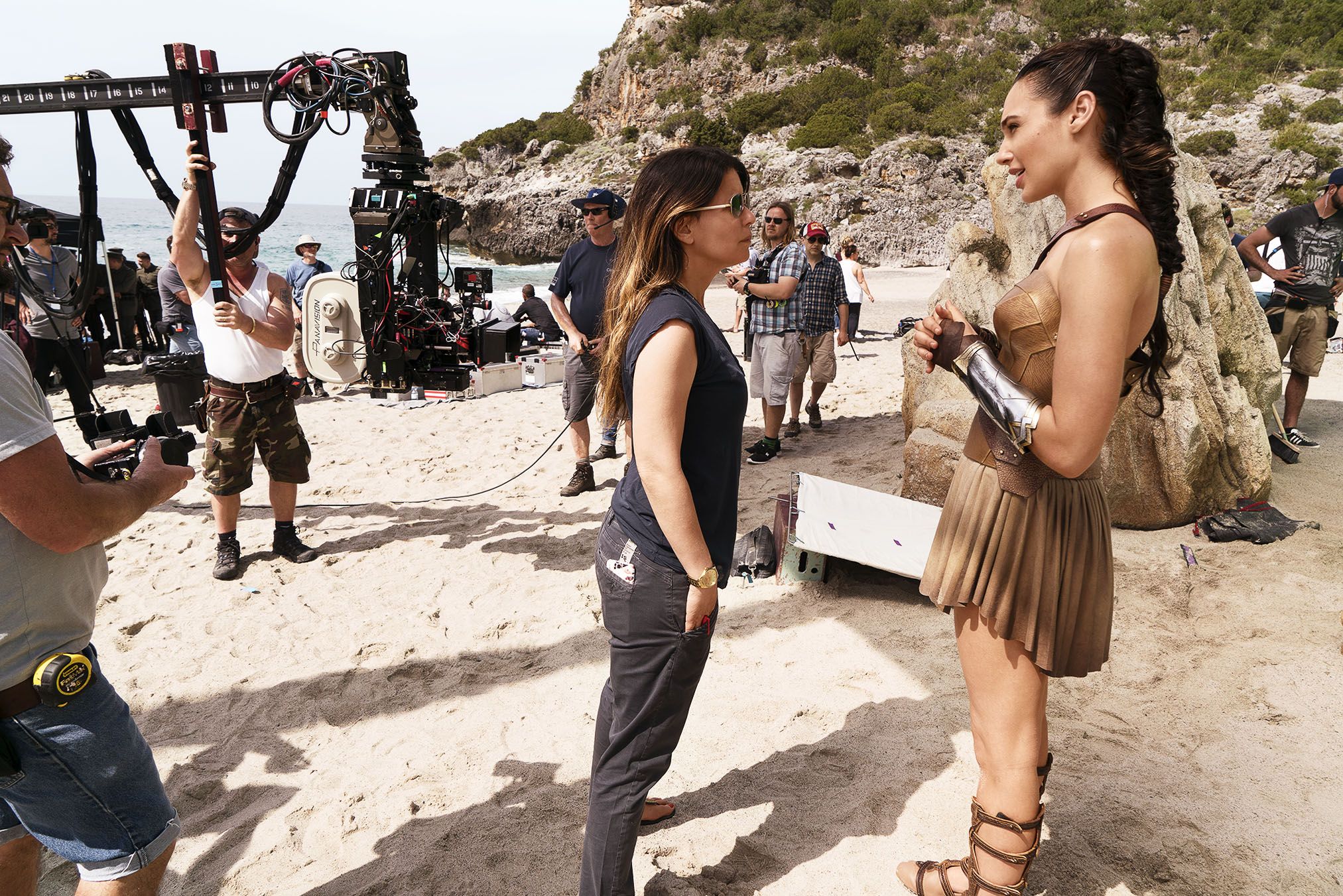
Batman and Superman, both towering over six feet tall with the requisite slicked-back hair, the smug grins, and the real-life muscles of an inflatable superhero costume, are onstage. It's the first time these two superdudes have stood together shoulder to shoulder for the world to see—kind of a big deal for comic-book nerds. But that's not why everyone else in the room is screaming like tweens at a Justin Bieber concert. The reason for the thunderous sound of a gajillion DC Comics diehards? The 5'10" brunette in the black dress. Her name is Wonder Woman, er, Gal Gadot, and she was all anyone could talk about at Comic-Con 2014, when Batman v Superman: Dawn of Justice was announced. (Wonder Woman would make her silver- screen debut in the highly anticipated 2016 blockbuster.) The actress had served two years in the Israeli Defense Forces and competed for Miss Universe, but Wonder Woman hadn't even lassoed any bad guys yet.
Nineteen months later, the sun is about to go down over the Royal Army Base an hour outside London, and Gadot has just arrived on the Wonder Woman set from her hair-and-makeup trailer. She looks every bit an Amazon warrior: tall and commanding even in the black puffy coat covering up her metallic red-and-blue costume, long dark-brown locks pinned up and tucked under a blue bandanna. She smiles wide and strides across the field toward the movie's director, Patty Jenkins, who has just finished running through moves with the fight choreographer and is waiting for the dark to settle in to shoot. Because the temperature will drop to the low 30s, Jenkins is bundled in a ridiculously huge blue North Face jacket, matching pants, and snow boots.
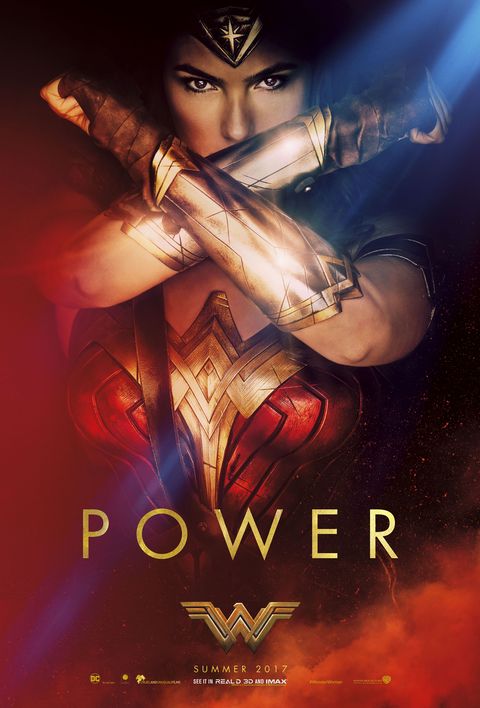
On this particular February night, Gadot and Jenkins have two scenes on the agenda: The first is a 10-second shot of Wonder Woman charging down a grass strip between two barbed-wire fences; the second is an action-packed sequence in which Wonder Woman takes out three German guards, tosses her lasso, and leaps to the top of a water tower.
The scenes will be part of a high-stakes moment in the film that builds on a variation of Wonder Woman's origin story—that she was brought up in a land of women before following airplane pilot Steve Trevor to man's world at the height of World War II. The heart of the story is Wonder Woman's struggle to keep her faith in mankind at a time when humans are killing each other en masse.
Some very real stakes surround production, too. When Wonder Woman is released this June, it will be the first time that the iconic female superhero will star in her very own movie. It also marks the first time a woman will have directed a big-budget superhero extravaganza. ("It was very important to me that we had a woman director," says Deborah Snyder, one of Wonder Woman's producers. "I said, 'She's the biggest feminist icon out there. How can we not have a female director?' It [would have] felt wrong.") It is also only the second time a woman has directed a movie with a budget of more than $100 million (the first: Kathryn Bigelow's 2002 submarine thriller K-19: Widowmaker).
And there are other women in positions of power. Tonight, production designer Aline Bonetto, set decorator Anna Lynch-Robinson, and visual-effects producer Amber Kirsch are watching, supervising, anticipating as Jenkins directs Gadot's takedown of the unlucky bad guys in uniform. And that's not to mention the several young female production assistants, Amazon warrior extras being fitted in bronzed leather skirts and tops, the more than a dozen women on the special- and visual-effects teams—the list goes on. It's worth noting that, according to a study released earlier this year by the Center for the Study of Women in Television and Film, in 2016 just 7 percent of the 250 highest-grossing films were directed by women. And 35 percent of the year's films had either no or only one female as either director, writer, or producer.
When Wonder Woman is released this June, it will be the first time that the iconic female superhero will star in her very own movie.
Of course, the number of women on the film's IMDb page isn't simply girl-power optics.
Stay In The Know
Get exclusive access to fashion and beauty trends, hot-off-the-press celebrity news, and more.
"It's important a woman is making this movie so we're not hampered by the fact that it's about a woman," says Jenkins, whose debut feature film was the female-driven, Oscar-nominated Monster (2003). "There was a period of time when everyone was so obsessed with making superheroines overly tough like a man, but actually they have to be vulnerable. And it's important to be super-confident with that. Yeah, Wonder Woman is softer—and she's more badass for it. Men have to be more cautious about it. Like, Am I being sexist? I'm not even thinking about that. I want it to be universal."
The thing about superheroes is that they are more than just powerful characters fighting injustice in metallic armor or colorful spandex. Their stories are, at their essence, relatable and aspirational tales about belonging: the nerdy teenager who transforms into a crime-fighting crusader (Spider-Man); mutants who want to live equally among humans (X-Men); an orphaned alien who proves he is the true defender of the American way of life (Superman). This kind of storytelling should be ripe for women, who have long felt like outsiders, striving for a proverbial seat at the table. Yet the few times Hollywood has conjured a female superhero (the antihero Catwoman in 2004, martial-arts warrior Elektra in 2005), we ended up with characters who were so emotionally closed off, so dour, so "independent," that they were nothing more than unrelatable stereotypes of what strong women are, and not an emotionally honest portrait of what strong women could optimistically aspire to be.
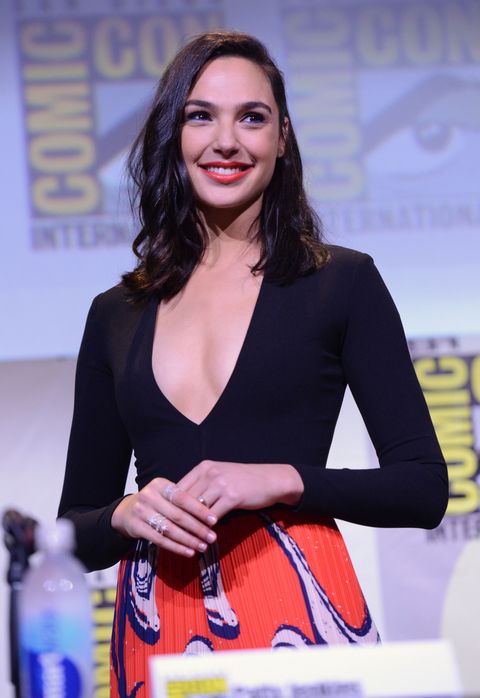
Gadot promoting Wonder Woman at Comic Con, 2016
Jenkins spent a lot of time thinking about what strength looks like when it comes from women and how that will translate on-screen. In scenes that depict Amazon warriors, for example, Jenkins says she sought to cast some of the world's best female athletes, including an American boxing pro, a track-and-field star, a CrossFit champion, and world-renowned martial artists. "I gained 14 pounds of muscle for the role," Gadot recalls. "It began with prepping for Batman v Superman. Before shooting began, I trained for six months, six days a week." (The bright side of so much exercise: "I was actually allowed to eat whatever I wanted, especially in the first five months.") Gadot's routine included weight training, horseback-riding lessons, martial arts, sword fighting, and choreography. But strength won't translate to gratuitous bloodshed (a problem that plagued fellow superhero flicks Man of Steel, Batman v Superman: Dawn of Justice, and Suicide Squad). "The Amazons wouldn't be reveling in or taking glory in the brutality. They would just be getting things done," Jenkins says. "Any move that felt gratuitous, like punching someone in the face to best them, just didn't feel authentic to me."
The comic-book and television industries have made enormous strides in breathing life into authentically female superheroes in recent years— Marvel's first Muslim girl superhero, Ms. Marvel; Netflix's Jessica Jones; The CW's Supergirl—but lack the blunt cultural impact of an epic big-screen extravaganza. To be the touchstone of a Batman, a Superman, an Iron Man, we need a superwoman with a movie. Enter Wonder Woman.
Back on set, Gadot is charging down that grass strip between the barbed-wire fences. Her face is intense. A pickup truck holding a camera is speeding in front of her. When the actress reaches the end of the path, she turns to her left and swings her sword-wielding arm down. Then she stops abruptly and smiles.
When the Batman v Superman movie was released to terrible reviews last year, critics recognized Wonder Woman as the movie's only redeeming part.
"Should I charge the sword as if I'm going to slash the guard?" Gadot asks Jenkins a minute later, when the two watch the replay on the monitor, analyzing her every move. Gadot is back in her coat as two young female production assistants, whose job it is to keep the star warm, direct heaters on her. A script supervisor, another young woman, is taking notes behind them. "Yeah, yeah, do that," Jenkins tells Gadot. So she does—another five times, with minor adjustments.
The set is huge, and there are hundreds of people ready to be called upon if needed. It's 6 p.m., by the way, and the production is serving breakfast (French fries, sausage and beans, and grilled tomatoes), a sign of the crew's off-kilter internal clocks. (They won't wrap until 4 a.m.)
Action movies are shot in hundreds of remarkably short fragments. And while, no doubt, these snippets will amount to a thrilling moment of the Wonder Woman movie, without the music, special effects, or sound, it all looks a little silly. Even Wonder Woman's sword is just a half-sword with green dots on the end, marked for special effects later.
This appears to be weird even to Gadot. After one take where she thrusts two German guards to the side, each actor seems to walk slowly out of the frame. It doesn't look at all forceful or dramatic, which Gadot points out as she watches herself on the screen. "Why is he walking?" she asks. A crew member tells her: "He won't be. He's going to fly back into the fence." This will all be fixed in special effects, he explains.
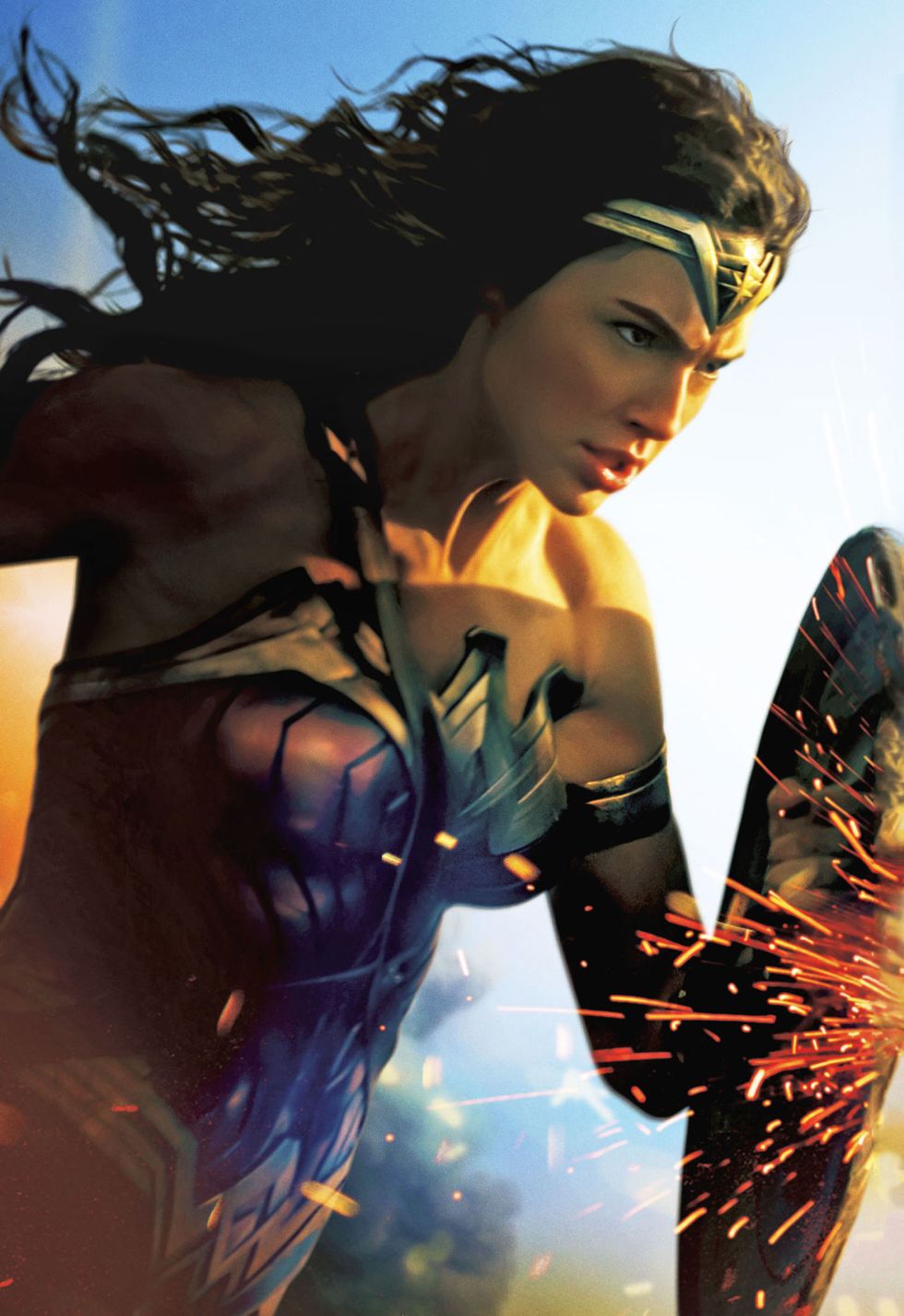
Gadot as Wonder Woman
You can forgive Gadot for not knowing exactly how it all will work. This is the first lead role for the 31-year-old former Israeli Defense Forces combat instructor. She was a model and actress best known for her recurring part in the Fast & Furious movies when she was cast as Wonder Woman. "We did castings for months and months," says Snyder. "There were two things that were important to us: Obviously, we needed an amazing actor. But we also wanted an amazing person. A lot of kids can't distinguish between actor and character, and we wanted to make sure that whoever we chose would be the perfect representation. Gal actually did the test with Ben [Affleck], and she went toe to toe—she was tough and feisty. There was just something about her, this inexplicable magical quality that everybody saw." There was immediate chemistry between star and director, too. "We had so many creative conversations about the characters and the relationship between the characters, and how the story should evolve," says Gadot a few months after filming has wrapped. "Patty and I truly became BFFs on this project—and for life."
She was tough and feisty. There was just something about her, this inexplicable magical quality that everybody saw.
The fans don't really need any winning over at this point. When the Batman v Superman movie was released to terrible reviews last year, critics recognized Wonder Woman as the movie's only redeeming part. "Ben Affleck's Got the Cool Car, But Wonder Woman Steals the Show" declared TheWrap; "How Wonder Woman Steals the Spotlight in Batman v Superman" was a headline in Time. She's already saved the day, and we're still months away from Wonder Woman hitting the box office.
Wonder Woman is a 75-year-old icon, but most of us know very little about her history or her as a character. The most famous depiction is the campy mid-'70s television series starring Lynda Carter clad in a bright red, white, and blue strapless bathing suit.
But the story of the original Wonder Woman stretches back to 1941, when psychologist and lie-detector pioneer William Moulton Marston created the heroine, basing her in part on a combination of two different women: his wife and his lover, both of whom he lived with in a polyamorous relationship. In the beginning, the visual of a woman warrior fighting bad guys was radical enough, and by the 1970s, feminists saw Wonder Woman as their hero. In the mid-'70s, we got the TV show. It wasn't until nearly four decades later, in 2013, that Warner Bros., which owns the rights to the character owned by DC Comics, was ready to reintroduce Wonder Woman.
Much has changed in Hollywood, as Jenkins points out: The success of billion-dollar blockbusters like The Hunger Games and Frozen challenges the conventional wisdom that only young men go to the movies. In the year leading up to the release, trailers have depicted Amazons gliding into battle, Wonder Woman hurling men across the screen, German soldiers running through the woods, and poignant moments between our hero and her mother. They promise thrilling action, beautifully shot landscapes, even humor and romance. And they have drummed up epic excitement.
The movie looks good. Heart-racingly, fist-pumpingly, this-is-going- to-be-f *cking-awesome good.
And it comes at a time when many women are redrawing the battle lines in the wake of last year's election, when Americans handed the presidency to a man who bragged about grabbing women "by the pussy" rather than elect the country's first female commander in chief. Other than the fun, cathartic escapism that comes with watching a woman kick some serious ass, there are still fundamental questions about how women will reach the highest corridors of power and what it will look like once we get there. Wonder Woman, we're waiting for you.
This article appears in the April issue of Marie Claire, on newsstands now.
-
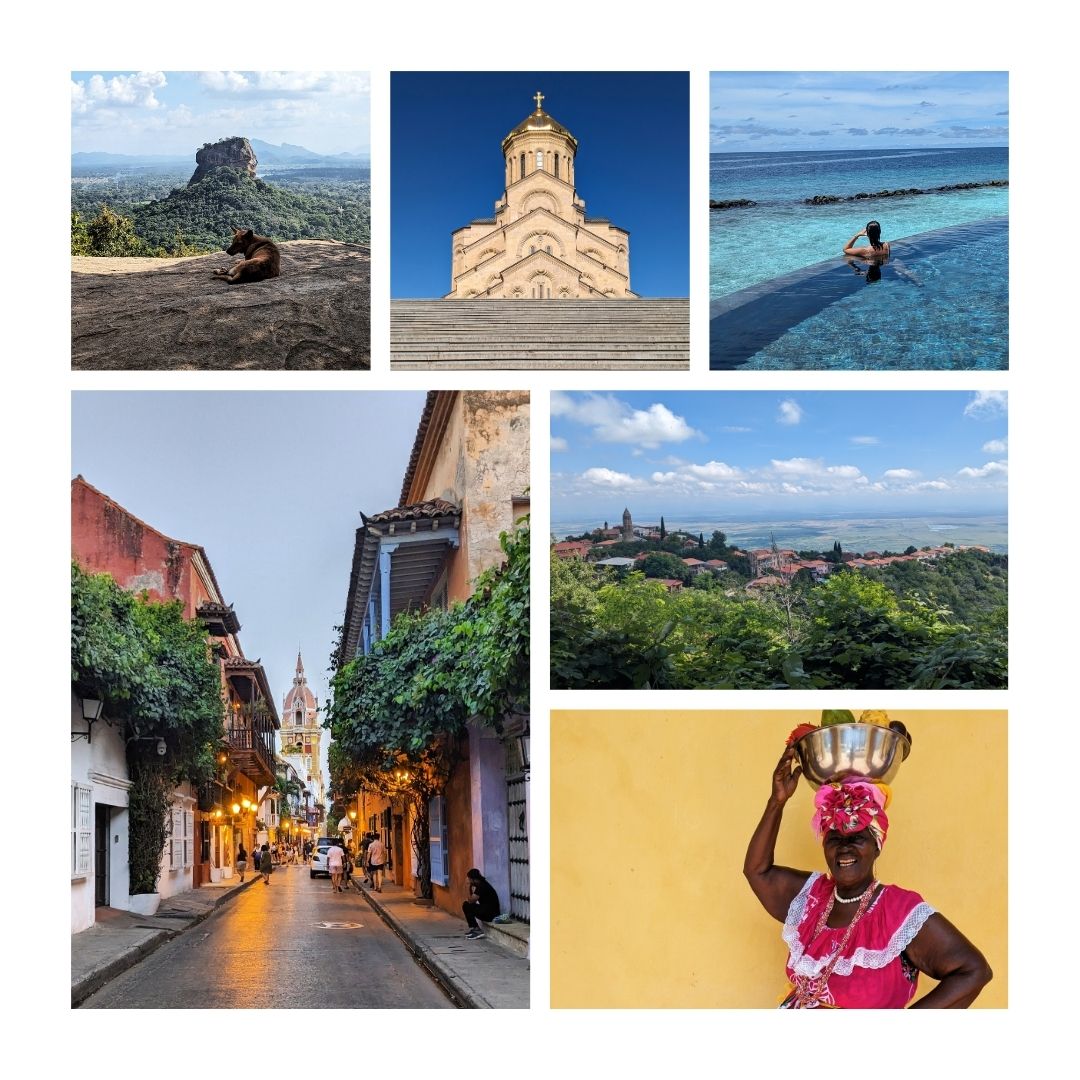 I've Traveled Alone for 20 Years—These Are the Best Destinations for Women Traveling Solo
I've Traveled Alone for 20 Years—These Are the Best Destinations for Women Traveling SoloFrom an island paradise to a once out-of-bounds region.
By Lydia Swinscoe Published
-
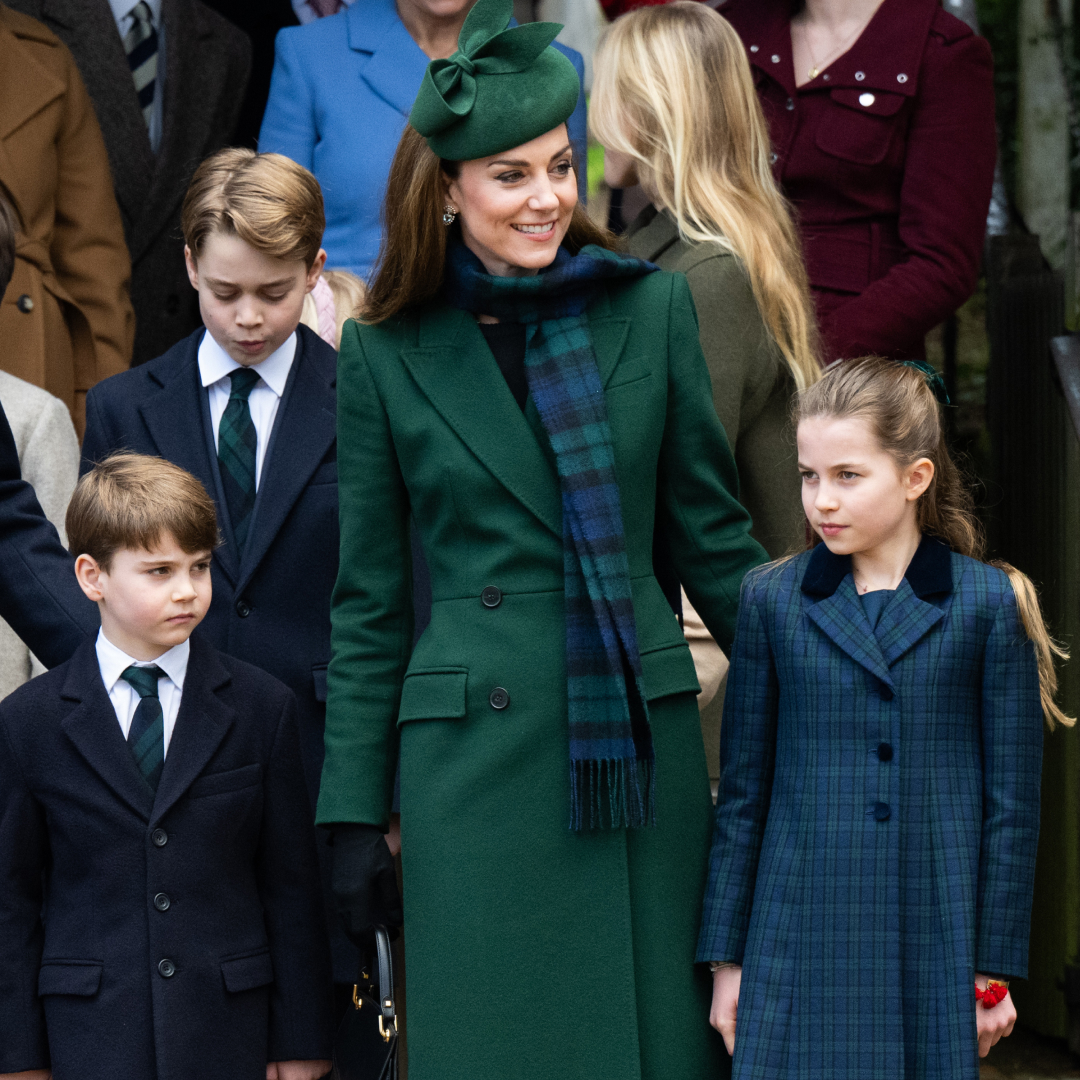 Why George Is Seen Publicly More Often Than Charlotte and Louis
Why George Is Seen Publicly More Often Than Charlotte and Louis"It is important for the royal image that you have this balance."
By Amy Mackelden Published
-
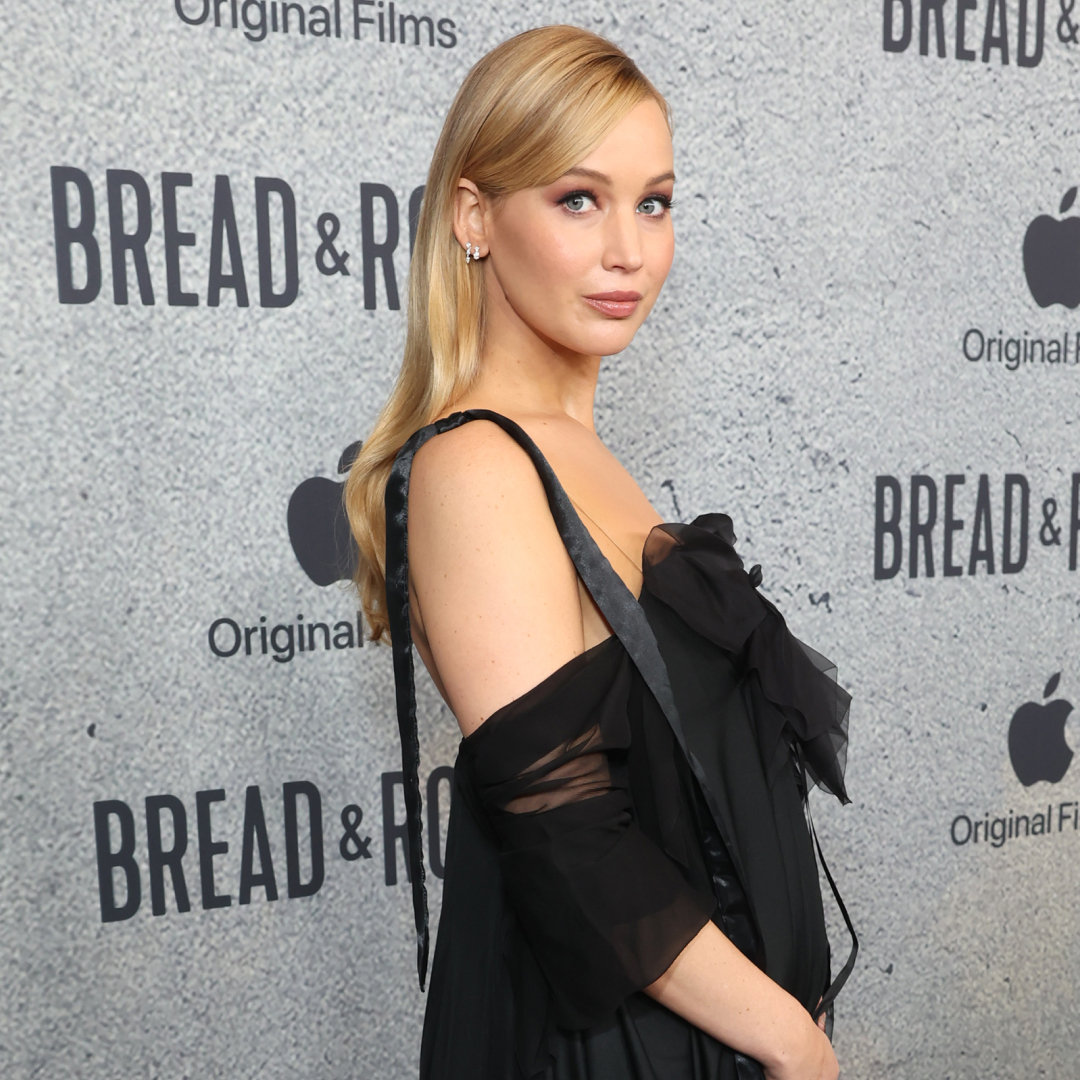 Jennifer Lawrence Tackles Spring's Most Over-the-Top Sunglasses Trend
Jennifer Lawrence Tackles Spring's Most Over-the-Top Sunglasses TrendConsider this your sign to snag a pair.
By Kelsey Stiegman Published
-
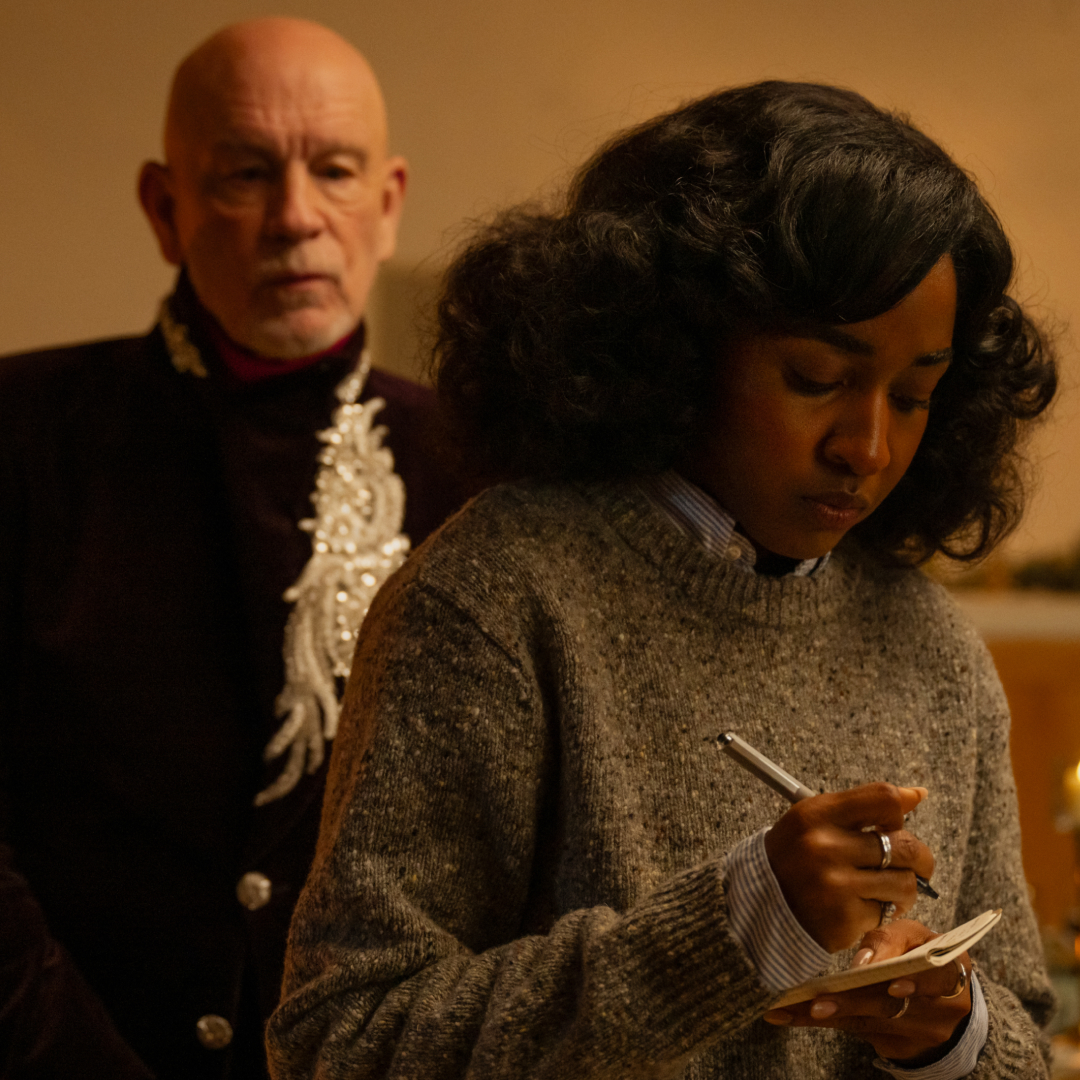 In 'Opus,' Cult Leaders and Pop Stars Are One in the Same
In 'Opus,' Cult Leaders and Pop Stars Are One in the SameThe A24 film's costume and production designers open up about crafting fictional pop icon Moretti’s style and mysterious estate.
By Sadie Bell Published
-
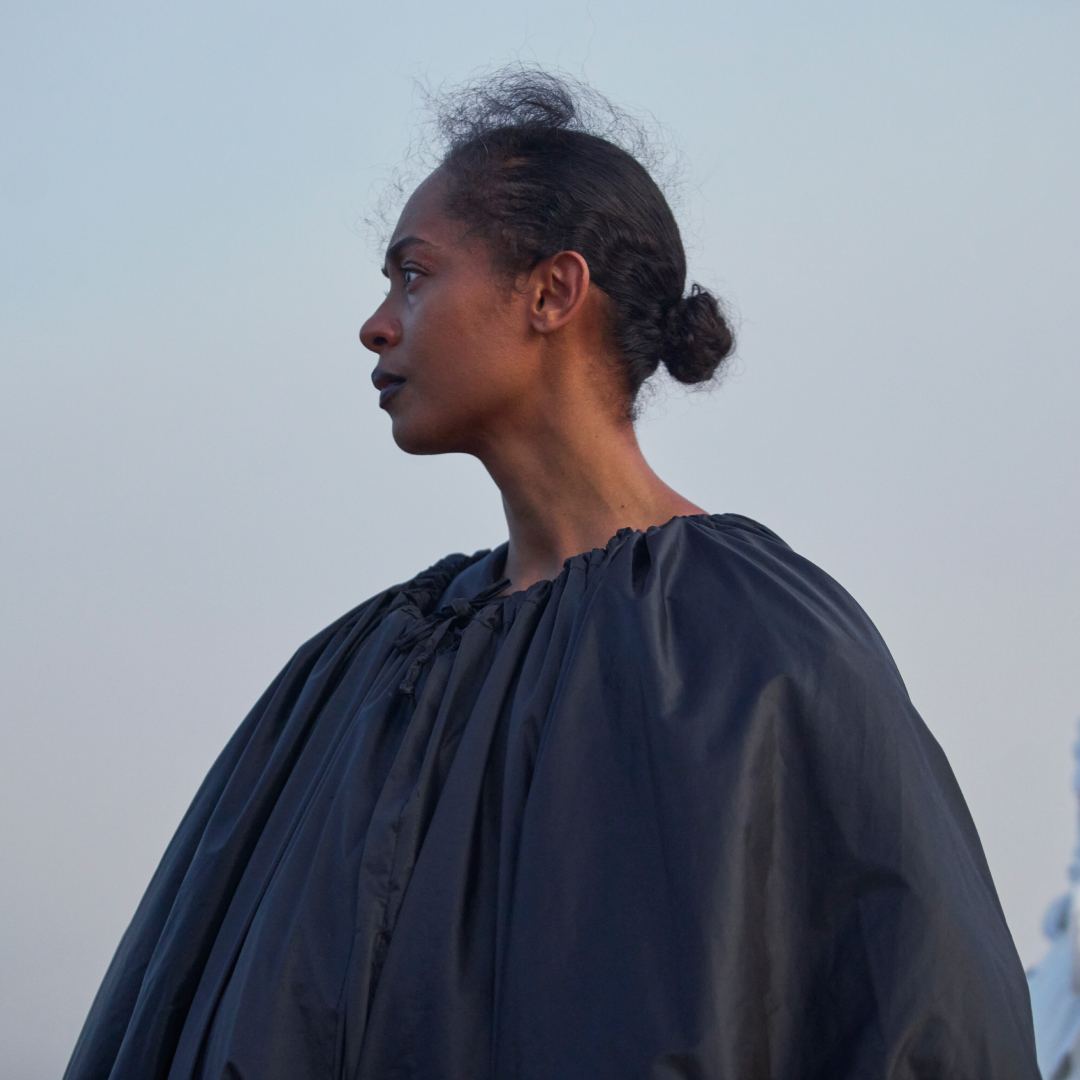 'On Becoming a Guinea Fowl' Is a Revolutionary Call to Speak Up Against Female Abuse
'On Becoming a Guinea Fowl' Is a Revolutionary Call to Speak Up Against Female AbuseAfter showing how a culture of silence around abuse can devastate entire generations, the arresting A24 film holds a mirror up to the audience and asks, \201cWhat happens if we scream?\201d
By Quinci LeGardye Published
-
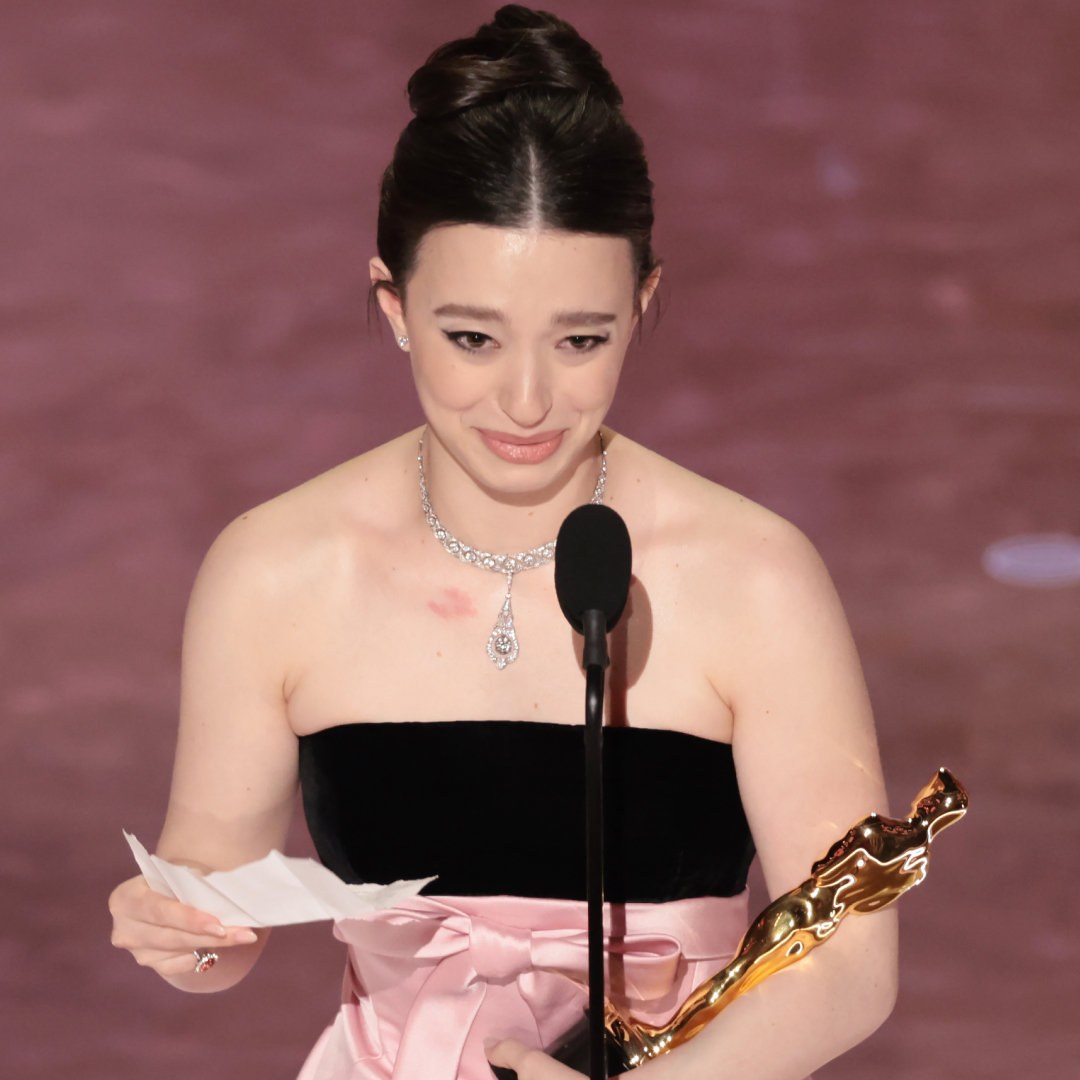 'Anora' Star Mikey Madison Takes Home the Best Actress Award at the 2025 Oscars in a Surprise Win
'Anora' Star Mikey Madison Takes Home the Best Actress Award at the 2025 Oscars in a Surprise Win"I will continue to support and be an ally."
By Quinci LeGardye Published
-
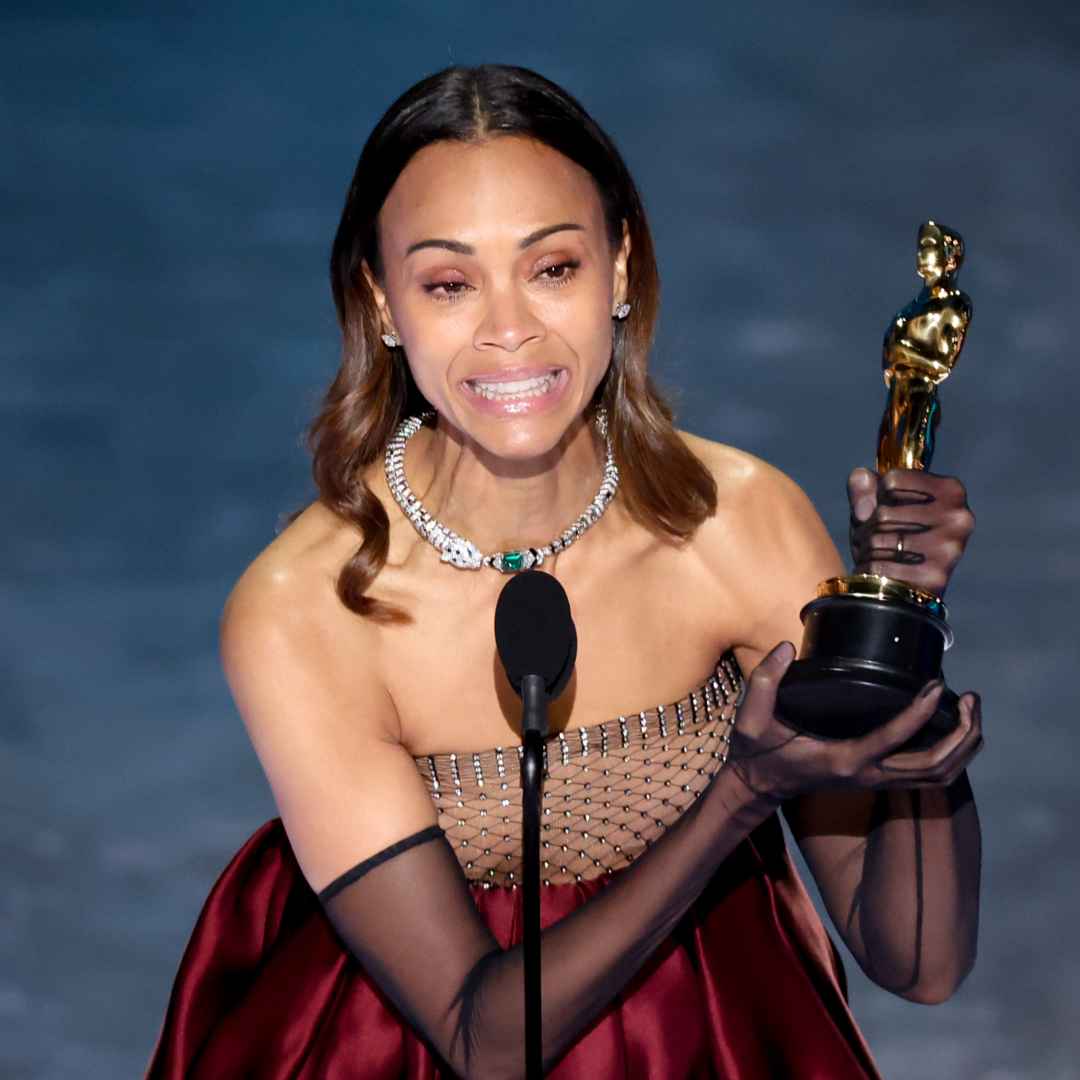 Zoe Saldaña Becomes the First American of Dominican Origin to Win an Oscar
Zoe Saldaña Becomes the First American of Dominican Origin to Win an Oscar"I am the first American of Dominican origin to accept an Academy Award and I know I will not be the last."
By Quinci LeGardye Published
-
 LISA, Doja Cat, and Raye Perform a Glamorous 'James Bond' Tribute at the 2025 Oscars
LISA, Doja Cat, and Raye Perform a Glamorous 'James Bond' Tribute at the 2025 OscarsThe Academy Awards are for the pop girls, actually.
By Quinci LeGardye Published
-
 Ariana Grande and Cynthia Erivo Open the 2025 Oscars With a Showstopping 'Wicked' Performance
Ariana Grande and Cynthia Erivo Open the 2025 Oscars With a Showstopping 'Wicked' PerformanceThe awards show began with a medley of songs inspired by the Best Picture-nominated film and adaptations of 'The Wizard of Oz.'
By Quinci LeGardye Published
-
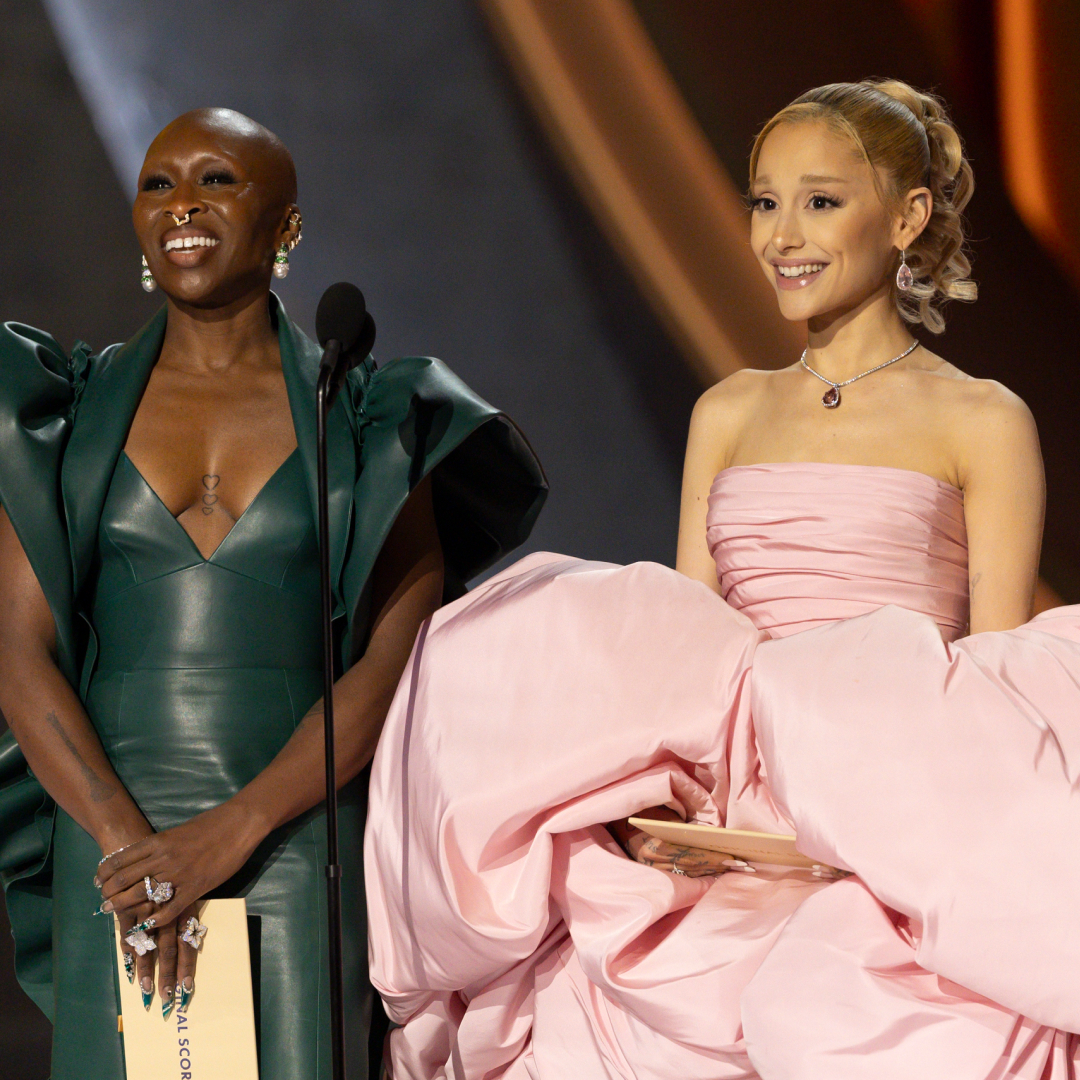 Everything to Know About the 2025 Oscars, From How to Watch to the Nominations
Everything to Know About the 2025 Oscars, From How to Watch to the NominationsIt's bound to be an unpredictable awards show.
By Quinci LeGardye Last updated
-
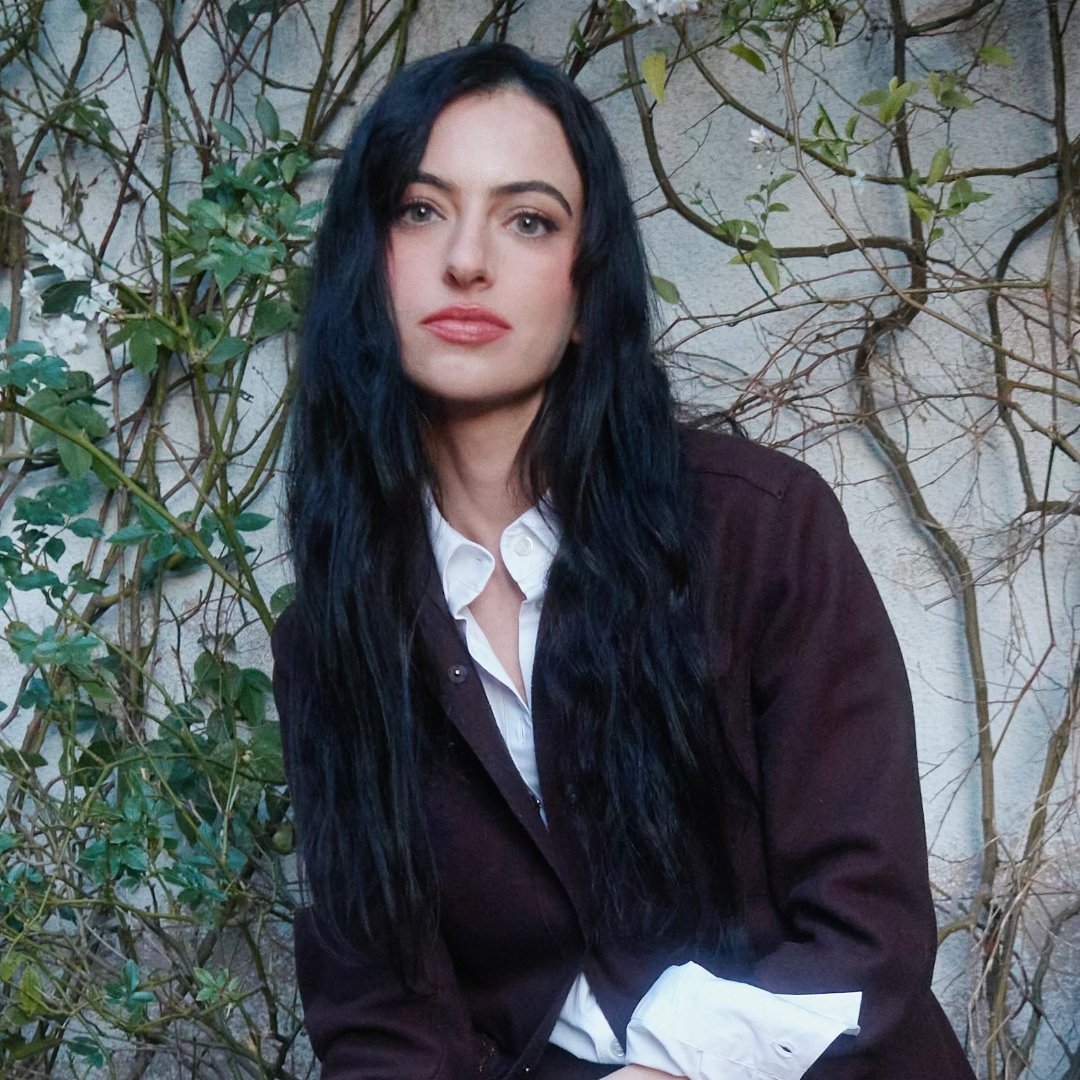 Cazzie David Spent Five Years Fighting to Make an "Anti-Rom-Com" About Emotional Abuse
Cazzie David Spent Five Years Fighting to Make an "Anti-Rom-Com" About Emotional AbuseThe writer/actress opens up about how she found catharsis after a breakup by making 'I Love You Forever.'
By Sadie Bell Published